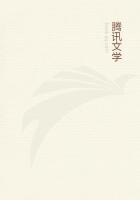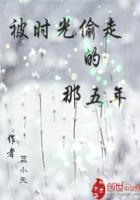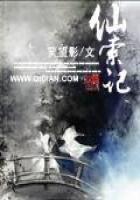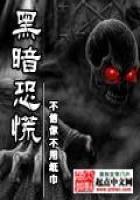From comparing the words in that list one might feel disposed to rush to the conclusion that the Cumric sprang from the Sanscrit, the sacred language of sunny Hindustan. But to do so would be unwise, for deeper study would show that if the Welsh has some hundreds of words in common with the Sanscrit, it has thousands upon thousands which are not to be found in that tongue, after making all possible allowance for change and modification. No subject connected with what is called philosophy is more mortifying to proud human reason than the investigation of languages, for in what do the researches of the most unwearied philologist terminate but a chaos of doubt and perplexity, else why such exclamations as these? Why is the Wallachian word for water Sanscrit? for what is the difference between apa and ap? Wallachian is formed from Latin and Sclavonian; why then is not the word for water either woda or aqua, or a modification of either? Why is the Arabic word for the sea Irish, for what is the difference between bahar, the Arabic word for sea, and beathra, an old Irish word for water, pronounced barra, whence the river Barrow? How is it that one of the names of the Ganges is Welsh; for what is the difference between Dhur, a name of that river, and dwr, the common Welsh word for water? How is it that aequor, a Latin word for the sea, so much resembles AEgir, the name of the Norse God of the sea? and how is it that Asaer, the appellative of the Northern Gods, is so like Asura, the family name of certain Hindu demons? Why does the scanty Gailk, the language of the Isle of Man, possess more Sanscrit words than the mighty Arabic, the richest of all tongues; and why has the Welsh only four words for a hill, and its sister language the Irish fifty-five? How is it that the names of so many streams in various countries, for example Donau, Dwina, Don, and Tyne, so much resemble Dhuni, a Sanscrit word for a river? How is it that the Sanscrit devila stands for what is wise and virtuous, and the English devil for all that is desperate and wicked? How is it that Alp and Apennine, Celtic words for a hill, so much resemble ap and apah, Sanscrit words for water? Why does the Sanscrit kalya mean to-morrow as well as yesterday, and the Gypsy merripen life as well as death? How is it that ur, a Gaelic word for fire, is so like ura the Basque word for water, and Ure the name of an English stream? Why does neron, the Modern Greek word for water, so little resemble the ancient Greek [text which cannot be reproduced] and so much resemble the Sanscrit nira? and how is it that nara, which like nira signifies water, so much resembles nara, the word for man and the Divinity? How is it that Nereus, the name of an ancient Greek water god, and Nar, the Arabic word for fire, are so very like Ner, the Welsh word for the Creator? How is it that a certain Scottish river bears the name of the wife of Oceanus, for what is Teith but Teithys? How indeed! and why indeed! to these and a thousand similar questions. Ah man, man! human reason will never answer them, and you may run wild about them, unless, dropping your pride, you are content to turn for a solution of your doubts to a certain old volume, once considered a book of divine revelation, but now a collection of old wives' tales, the Bible.
Footnotes:
(1) That vira at one time meant man in general, as well as fire, there can be no doubt. It is singular how this word or something strikingly like it, occurs in various European languages, sometimes as man, sometimes as fire. Vir in Latin signifies man, but vuur in Dutch signifies fire. In like manner fear in Irish signifies a man, but fire in English signifies the consuming, or, as the Hindus would call it, the producing element.
(2) "Pawb a'i cenfydd, o bydd bai, A Bawddyn, er na byddai." - GRONWY OWEN.
(3) One or two of the characters and incidents in this Saga are mentioned in the Romany Rye. London, 1857, vol. i. p. 240; vol.
ii. p. 150.
A partial translation of the Saga, made by myself, has been many years in existence. It forms part of a mountain of unpublished translations from the Northern languages. In my younger days no London publisher, or indeed magazine editor, would look at anything from the Norse, Danish, etc.
(4) All these three names are very common in Norfolk, the population of which is of Norse origin. Skarphethin is at present pronounced Sharpin. Helgi Heely. Skarphethin, interpreted, is a keen pirate.
(5) Eryri likewise signifies an excrescence or scrofulous eruption.
It is possible that many will be disposed to maintain that in the case of Snowdon the word is intended to express a rugged excrescence or eruption on the surface of the earth.
(6) It will not be amiss to observe that the original term is gwyddfa but gwyddfa; being a feminine noun or compound commencing with g, which is a mutable consonant, loses the initial letter before y the definite article - you say Gwyddfa a tumulus, but not y gwyddfa THE tumulus.
(7) Essay on the Origin of the English Stage by Bishop Percy.
London, 1793.
(8) The above account is chiefly taken from the curious Welsh book called "Dych y prif Oesoedd."(9) Spirits.
(10) Eel.
(11) For an account of this worm, which has various denominations, see article "Fasciola Hepatica" in any Encyclopaedia.
(12) As the umbrella is rather a hackneyed subject two or three things will of course be found in the above eulogium on an umbrella which have been said by other folks on that subject; the writer, however, flatters himself that in his eulogium on an umbrella two or three things will also be found which have never been said by any one else about an umbrella.
(13) Bitter root.
(14) Amongst others a kind of novel called "The Adventures of Twm Shon Catty, a Wild Wag of Wales." It possesses considerable literary merit, the language being pure, and many of the descriptions graphic. By far the greater part of it, however, would serve for the life of any young Welsh peasant, quite as well as for that of Twm Shon Catti. Its grand fault is endeavouring to invest Twm Shon with a character of honesty, and to make his exploits appear rather those of a wild young waggish fellow than of a robber. This was committing a great mistake. When people take up the lives of bad characters the more rogueries and villainies they find, the better they are pleased, and they are very much disappointed and consider themselves defrauded by any attempt to apologise for the actions of the heroes. If the thieves should chance to have reformed, the respectable readers wish to hear nothing of their reformation till just at the close of the book, when they are very happy to have done with them for ever.
(15) Skazka O Klimkie. Moscow, 1829.
(16) Hanes Crefydd Yn Nghymru.
(17) The good gentlewoman was probably thinking of the celebrated king Brian Boromhe slain at the battle of Clontarf.
(18) Fox's Court - perhaps London.
(19) Drych y Prif Oesoedd, p. 100.
(20) Y Greal, p. 279.
(21) Hanes Crefydd Yn NGhymru.
(22) Fear caoch: vir caecus.
(23) Curses of this description, or evil prayers as they are called, are very common in the Irish language, and are frequently turned to terrible account by that most singular class or sect, the Irish mendicants. Several cases have occurred connected with these prayers, corresponding in many respects with the case detailed above.
(24) Sanscrit, Kali, a hero.
(25) Sanscrit, Rama, Ramana, a husband.
(26) Romany chal, son of Rome, lad of Rome. Romany chi, daughter of Rome, girl of Rome. Chal, chiel, child, the Russian cheloviek, a man, and the Sanscrit Jana, to be born, are all kindred words.
(27) For a clear and satisfactory account of this system see Owen's Welsh Grammar, p. 13.
(28) Owen's Grammar, p. 40.
(29) Pronounced vile or wile - here the principle of literal mutation is at work.
(30) Lat. aurum, gold; AERis, of brass. Perhaps the true meaning of ara, aurum, &c., is unrefined metal; if so, we have the root of them all in our own word ore.
(31) "The Eternal, the divine imperishable spirit pervading the universe." - WILSON'S SANSCRIT DICTIONARY, p. 453.
End


